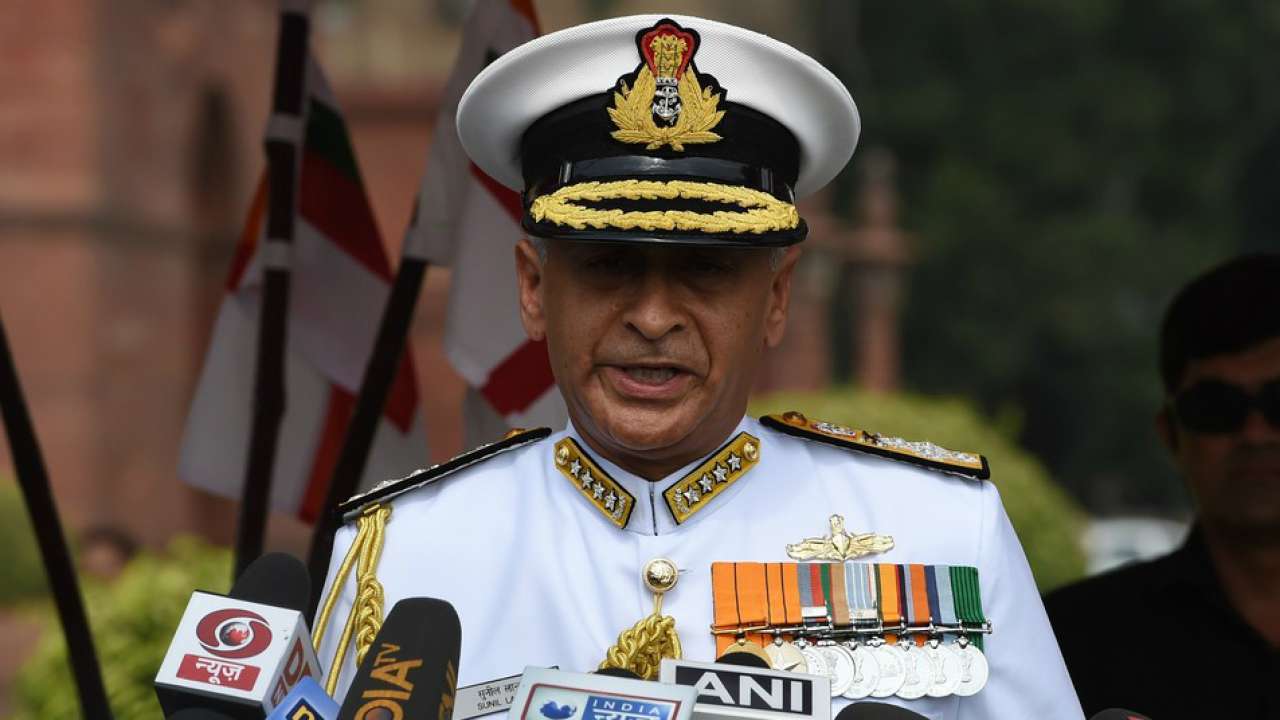
Terror planners are designing fresh attacks in India, including through the sea, said Navy chief Admiral Sunil Lanba on Tuesday, citing intelligence reports of terrorists being trained for more operations in the country.
Addressing a gathering of global experts at the Indo-Pacific Regional Dialogue in New Delhi, Admiral Lanba said, "We also have reports of terrorists being trained to carry out attacks with varying modus operandi including through the sea."
He did not name Pakistan but said India faces state-sponsored terrorism, which is a more serious form of terrorism. He said terrorists have been quickly adopting new ways and the Indian security establishment has been continuously working to combat the new threats.
"You have all witnessed the horrific scale of the extremist attack in the Indian state of Jammu and Kashmir just three weeks ago. This violence was perpetrated by extremists aided and abetted by a state which seeks to destabilise India," he said.
On February 14, Jaish-e-Mohammed carried out a fidayeen attack in Pulwama in Jammu and Kashmir in which 40 Indian Central Reserve Police Force personnel were killed. He referred to the 26/11 terror attack that was carried out by ten sea-borne terrorists of the Lashkar-e-Taiba who hijacked an Indian fishing trawler to reach
Mumbai. The attackers killed nearly 170 people in November 2008.
"We have seen how quickly terror groups evolve across the globe. A particular brand of terror can well become a global problem in near future," Admiral Lanba stressed.
Intelligence reports have also alerted about the threat of a terror attack through the seas by Pakistan-based terrorists, backed by their army. There are inputs that several aquatic wings of the terror outfits have been set up. Outfits like LeT and JeM are training their new recruits in water combat skills, reports said.
Indian security establishment is also continuously working to address this menace, said the Navy chief. Emphasising the importance of the Indo-Pacific region, he stressed: "There is a renewed focus of the world on the seas. This is principally due to the geo-economics and geopolitical significance of the maritime domain."
He added: "It is imperative that the global community acts in concert to contain and eliminate terrorism, in all its forms."